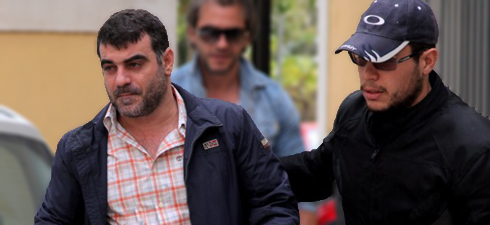"The more laws a country has, the more corrupt it is," the Roman historian Tacitus used to say. Greece has quite a few laws. So many, in fact, that corruption can feel quite safe. An exclusive club of powerful people engages in illegal practices, then pushes through necessary laws to legalise these practices, granting itself an amnesty, and in the end, there are no media to uncover what really happened.
As I write, the adventures of an independent magazine in Greece, Hot Doc, which I edit, are being discussed worldwide. Our publication of a list of alleged Swiss bank account holders, and my subsequent arrest, has provoked a storm. But not in the Greek media. A few months ago, Reuters and the British press uncovered scandals involving Greek banks. The Greek media didn't write anything then either. The space that should have been granted to reports about these scandals was occupied by paid advertisements sponsored by the very people who caused the Greek banks to go under.
The "Lagarde" case in Greece is merely an extreme expression of this situation. In 2010, Lagarde handed to the then minister of finance, George Papaconstantinou, a list of Greeks who held bank accounts abroad. Some of this was "black money" – money that may not have been taxed or needed to be laundered. In a convuloted train of events, Papaconstantinou admitted to losing the original data, but was able to pass another copy to his successor Evangelos Venizelos, who eventually admitted to having held it but has failed to produce it so far. The list has still never been properly investigated.
For the past two years, the issue of naming people who are assumed to hold bank accounts in Switzerland has poisoned political life in Greece, with political and financial blackmail taking place in the dark rooms of corrupt power. It's in this context that Hot Doc published 2,059 names of Greeks alleged to have Swiss bank accounts, without specifying the amount of their deposits or any other personal information.
And then, with utmost hypocrisy the powers that be remembered what they were about. The Athens prosecutor made a move ex officio and ordered my immediate arrest. The law on personal data was invoked as a basis for indictment. In reality, though, there was no personal data involved – only the fact that certain individuals held an account in a certain bank. We did not even allege that these individuals were guilty, only called for an investigation.
Background
A trial with a political dimension?
Kostas Vaxevanis was arrested and released on October 28, the day after his magazine published more than 2,000 names of people who had money deposited in the HSBC bank in Switzerland. The names were on the so-called Lagarde List, named for the former French Minister of Economy who handed the document to the Greek authorities in 2010 on a CD.
The editor-in-chief of Hot Doc appeared in court in Athens on 29 October, charged with breaking the law on publication of private data, but the trial was put off until November 1. His lawyers have said they will attempt to demonstrate the political dimension of the case. According to Athens daily Kathimerini, the postponement should also allow some of the persons named in the list to be summonsed as witnesses at the hearing.
Was this article useful? If so we are delighted!
It is freely available because we believe that the right to free and independent information is essential for democracy. But this right is not guaranteed forever, and independence comes at a cost. We need your support in order to continue publishing independent, multilingual news for all Europeans.
Discover our subscription offers and their exclusive benefits and become a member of our community now!












